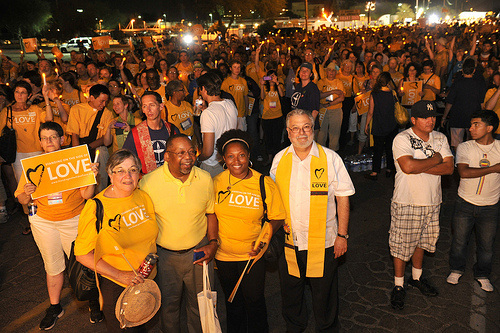|
What's the Intersection of Beloved Community and Church Governance?
One of the powerful questions of effective governance is the question of moral ownership. Who are your sources of authority and accountability as a board? With whom do you validate your work as trustees? Whose input do you have no moral right to ignore? In essence: whose are you? Getting clear about our moral owners was a turning point in the life of Unity Church-Unitarian. In the past, the board had understood itself as deriving its authority from and being accountable to its members. Ten years ago, this policy came up for review, and the board chair wondered if we didn't risk self-perpetuation if the board continued to see its primary relationship being with the church's members, even if those members were the church's legal owners. The board decided to study the theologies of Beloved Community to see if that would better describe their true accountability. Unity Church's board now understands its source of authority and accountability as "All those who yearn for the Beloved Community, and see Unity Church as one instrument for its realization. Beloved Community is community at the highest level of reality and possibility, where love and justice prevail." The board invested six months of careful study, reflection and discernment before they crafted these two simple sentences. Despite their simplicity, these sentences catalyzed a turning outward of the church over the following ten years:
1 Comment
|
What's Here?Our thinking about the role of governance in congregational life. Archives
April 2020
Categories
All
|
© Unity Consulting • A program of Unity Church-Unitarian • Awaken compassion. Transform lives. Bless the world.
732 Holly Avenue, Saint Paul, MN 55104 • 651-228-1456 • [email protected]
732 Holly Avenue, Saint Paul, MN 55104 • 651-228-1456 • [email protected]


 RSS Feed
RSS Feed
